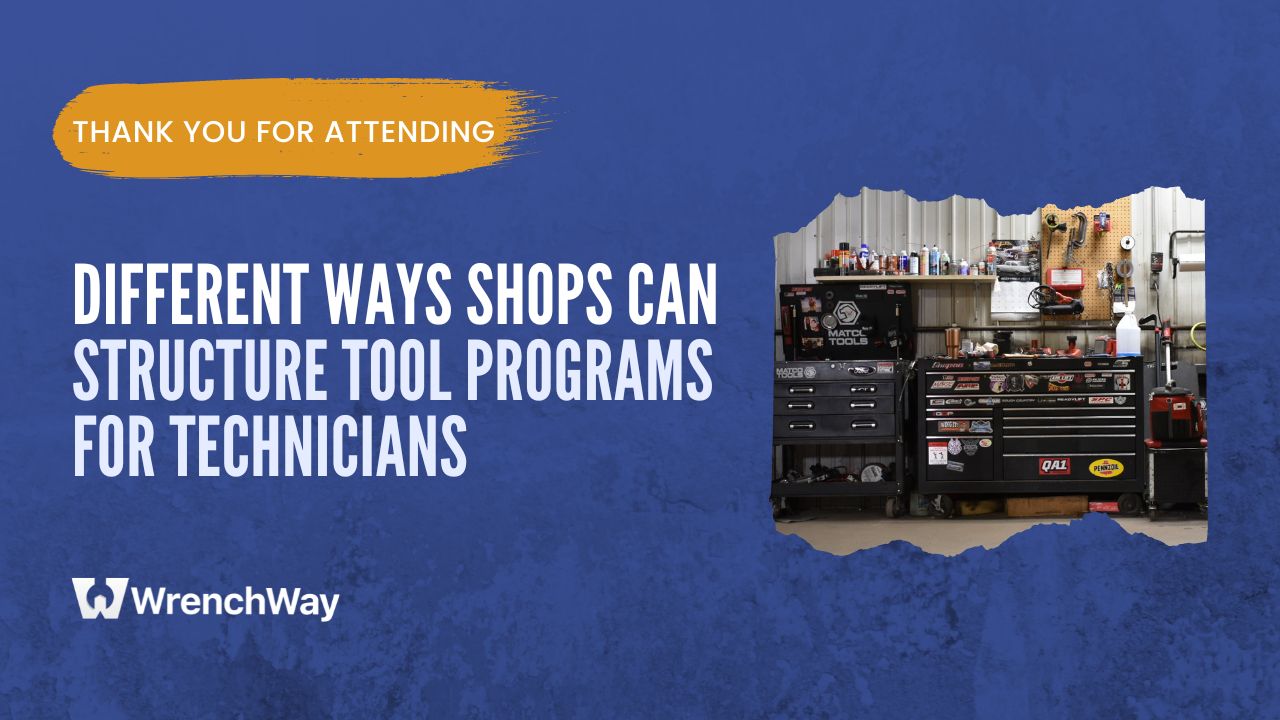Thirty-three percent of technicians think the biggest challenge of being a new technician is the tool investment. With this being a major pain point for technicians, we recently hosted a roundtable to discuss the different ways shops can structure tool programs for technicians.
Watch the Recording
Roundtable Highlights
Why Shops Should Consider Tools Programs
- Helping mitigate tool debt for technicians should be a priority for shops. Typically, technicians are responsible for buying their own tools. We’re beginning to see a shift where shops and dealerships purchase tools as an incentive to attract and retain technicians.
- Technicians should have their own tools, but the thought of having to purchase tools to do a job for a dealership or shop to run successfully doesn’t seem fair.
- After going to school, the last thing a technician should do is spend $50,000 on a tool truck. This is putting them financially behind before they even get a start in their career.
- Find out what tools technicians need and write a list for the next few years. If possible, find kits or tools that are going to be helpful for new technicians coming into the shop.
Examples of Tool Programs
- Provide technicians with a specific loan amount that the technician can pay back to the shop. This way, the technician doesn’t need to come up with the money all at once and can pay the shop back interest-free.
- As a shop, buy a starter kit for new technicians that is owned by the shop. Once the technician has worked at the shop for a specific number of years, the buying power of the kit can then transfer to the technician. This option is well worth the money given the money the shop will save on employee retention.
- Give technicians an annual tool allowance. The amount of the allowance can vary depending on the shop or the number of years a technician has been with the shop. It’s a benefit shops can use for recruiting, and technicians will want to tell potential applicants.
- Get creative when thinking of different ways to offer a tool program for technicians. For example, offer technicians a certain amount of money they can use on tools per month if they hit a specific goal.
Financial Responsibility and Education
- New technicians often put financial responsibility on the back burner because they want to be taken seriously in the shop. Which can be very difficult when they see master technicians with large tool collections and huge tool boxes.
- Oftentimes, technicians get caught up buying tools they don’t need. A good rule is not to buy a tool until you’ve had to borrow it at least two times.
- The best veteran techs are the ones who budget and work hard not to make financial mistakes—along with helping the new technicians avoid those mistakes as well.
Key Takeaways
- Instead of dismissing a tool allowance, create a plan to see if it’s doable.
- Can you offer a set of starter tools to techs? This is a pretty small investment for the benefits you will get out of it.
- Look into tool insurance and make sure you are adequately protected.




